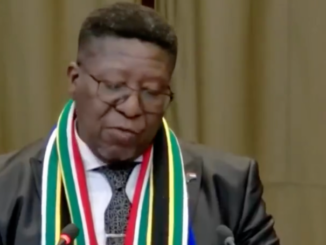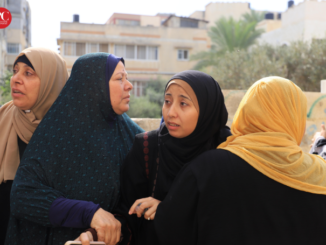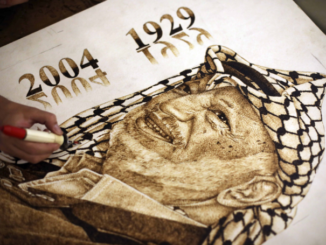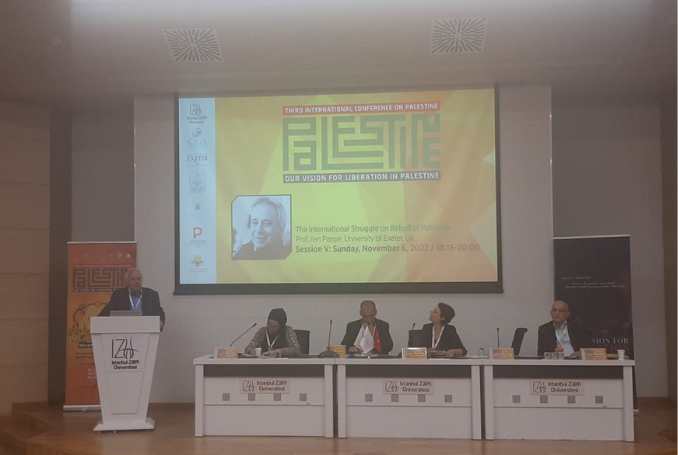
By Romana Rubeo 
CIGA’s ‘Third Conference on Palestine’ continued on Sunday in the Turkish city of Istanbul, under the title “Our Vision for Liberation in Palestine”.
The three-day conference is entirely focused on the recently released book Our Vision for Liberation: Engaged Palestinian Leaders and Intellectuals Speak Out, co-edited by Ramzy Baroud and Ilan Pappe.
Organized by the Center for Islam and Global Affairs (CIGA), at Istanbul Sabahattin Zaim University, the first day of the conference saw the participation of many contributors to the book, either in person or virtually, as well as other prominent intellectuals and Turkish and Arab lawmakers and scholars.
+++ LIVE COVERAGE FROM THE 3rd INTERNATIONAL CONFERENCE ON PALESTINE
Haneen Zoabi: "Palestinians with Israeli citizenship became cheap laborers. The citizenship was an Israeli strategy to control us and destroy the identity of the Palestinian people by law." pic.twitter.com/GKANjN7egn
— The Palestine Chronicle (@PalestineChron) November 6, 2022
The second day started with Palestinian media specialist Qassem Ali, who urged Palestinian journalists and media professionals to own their own narrative: “We are the factory of the news,” he stated, “but we are letting Reuters or others to own the news.”
Mazin Qumsiyeh, Palestinian scientist, author and activist, recalled how the very same “idea of the creation of Isral destroyed the human diversity in Palestine.”
For her part, Dr. Layla al-Marayati from Kinder USA described their organization’s commitment to practice charity as a form of “dignity and empowerment”. She also illustrated the challenges posed by the Israeli occupation, since, as she stressed, “Every attempt at empowering Palestinians is considered a threat.”
Jan Chalmers, from the UK-based Palestinian History Tapestry Project, explained how “Palestinian embroidery has survived throughout seven decades of Israeli occupation and colonization” and how important is it to preserve this important heritage.
Anuar Majluf Issa, former head of the Palestinian Community of Chile – the largest Palestinian community outside the Middle East – offered a direct testimony of the hardship his ancestors had to face to reach the South American country and to succeed.
+++ LIVE COVERAGE FROM THE THIRD INTERNATIONAL CONFERENCE ON PALESTINE: OUR VISION FOR LIBERATION +++
Prof. Ilan Pappe: "Inside Israel, rhe Zionist Left has totally disappeared. There is no liberal Zionism anymore and this is so important because it created confusion."
— The Palestine Chronicle (@PalestineChron) November 6, 2022
He also explained how strong the ties with the homeland remained, especially through grassroots organization and the football team Deportivo Palestino, which keeps the Palestinian identity alive to this day. “I am a Chilean of Palestinian origin,” Majluf explained, “but when I am in a Palestinian environment, I feel I am a Palestinian who was born in Chile”.
Haneen Zoabi, political activist and former member of the Knesset, explained how controversial the issue of Israeli citizenship can be for Palestinians who live in Palestine 1948. She illustrated how Palestinian with Israeli citizenship became cheap laborers, exploited by Israel to develop its own economy: “The citizenship,” she said, “was an Israeli strategy to control us and destroy the identity of the Palestinian people by law.
NGO President Awad Abdel Fattah went even further, stating that when Israel “continued with its oppressive policies and approved the Nation-State Law, I chose not to be in the Knesset anymore, because it was time to go back to the Liberation struggle.”
Professor Ilan Pappé urged Palestinians to invest more resources to provide an academic framework to the Palestinian discourse. “Zionists invested many resources to prove that Zionism is scientifically right, not morally, but academically”, he said.
Pappé was also optimistic about the renewed Palestinian Unity witnessed starting from May 2021 and what was called the Unity Intifada. He also stated that “Inside Israel, the Zionist Left has totally disappeared. There is no Liberal Zionism anymore and this is so important because it created confusion.”
+++ LIVE COVERAGE FROM THE THIRD INTERNATIONAL CONFERENCE ON PALESTINE: OUR VISION FOR LIBERATION +++
Prof. Sami Al-Arian: "This is not a religious conflict. This is how the Zionist movement wants to present it but it is a conflict due to aggression and settler colonialism". pic.twitter.com/0PJwyBuleG
— The Palestine Chronicle (@PalestineChron) November 6, 2022
Pappé also urged Palestinians and activists to “move the solidarity movement from the West to the non-Western world.”
Professor Sami Al-Arian, Director of CIGA and contributor to the book, explained how “this is not a religious conflict.”
“This is how the Zionist movement wants to present it,” he said, “but it is a conflict due to aggression and settler colonialism.”
(The Palestine Chronicle)
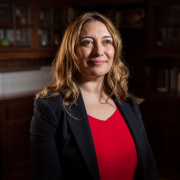
– Romana Rubeo is an Italian writer and the managing editor of The Palestine Chronicle. Her articles appeared in many online newspapers and academic journals. She holds a Master’s Degree in Foreign Languages and Literature and specializes in audio-visual and journalism translation.



